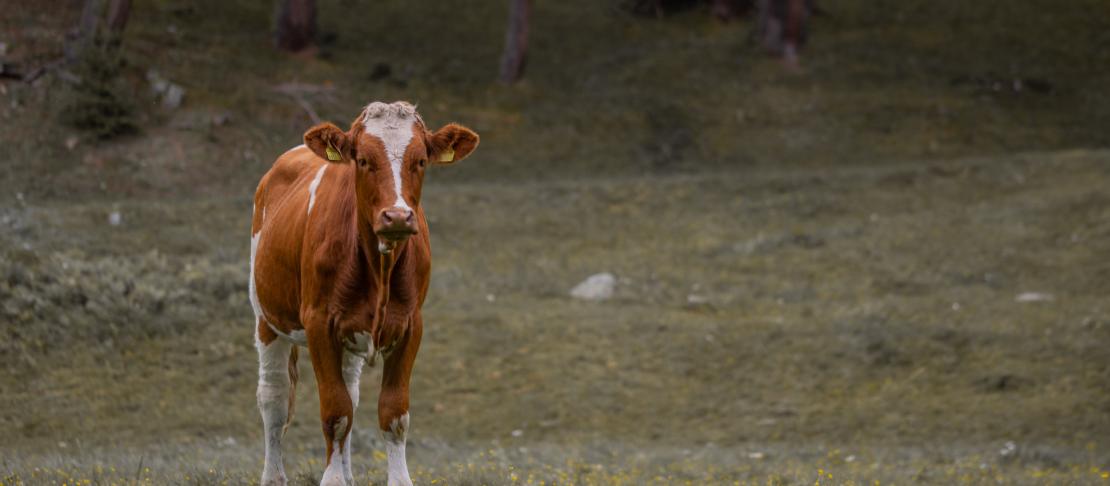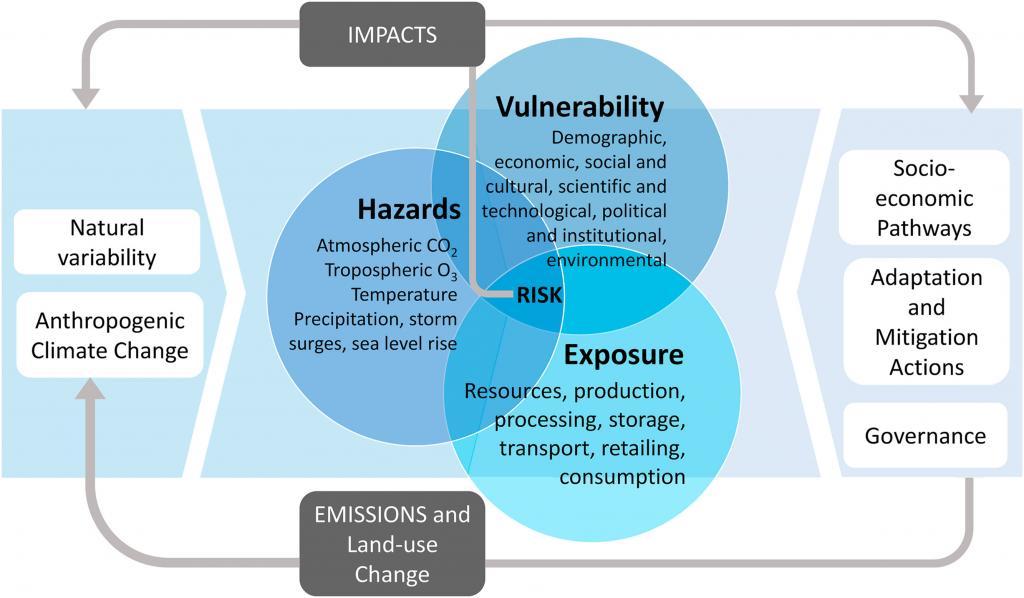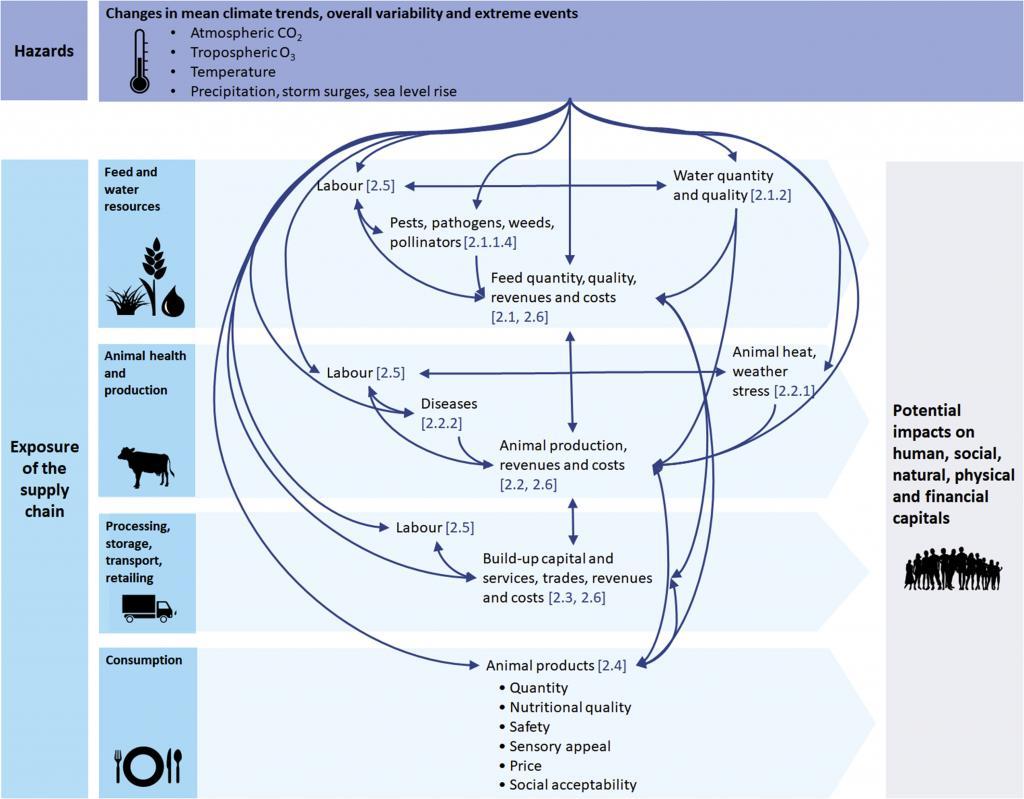New review of the impacts of climate change on the livestock food supply chain

This blog was originally posted on CSIRO's Food Systems and Global Change website.
From farm production to processing operations, storage, transport, retailing and human consumption, there is strong evidence that there will be impacts of climate change throughout the livestock food supply chain.
Climate change is a major concern for current livestock systems worldwide. It threatens their ability to support livelihoods and meet the increasing demand for livestock products. Yet, the topic is covered to a limited extent in global reports such as the ones produced by the Intergovernmental Panel on Climate Change (IPCC).
To help fill this gap, a team of scientists from the Commonwealth Scientific and Industrial Research Organisation (CSIRO) and the CGIAR Research Program on Climate Change, Agriculture and Food Security (CCAFS) has reviewed the risk of climate-related impacts along the land-based livestock food supply chain.
This review, published in Global Food Security is framed around the concept of risk of climate-related impacts. Risk of climate-related impacts results from the interaction of climate-related hazards with the exposure and vulnerability of human and natural systems.
Figure 1. Schematic of the interaction among the physical climate system, exposure, and vulnerability producing risk in the livestock supply chain.
The authors highlight that although a quantification of the net impacts of climate change on the livestock sector is beyond the reach of our current understanding, there is strong evidence that there will be impacts throughout the supply chain, from the availability and quality of resources such as animal feed and water, to the welfare and productivity of animals.
Figure 2. Potential impacts of climate-related hazards on the livestock land-based food supply chain.
Although generally less documented in the literature, climate change also has implications for processing, storage, transport and retailing. In many countries, the supply chain for livestock products is highly concentrated and coordinated, and disruptions anywhere along the supply chain can have impacts throughout the chain. This is exemplified by the COVID-19 outbreak in the USA which prevented the processing of pigs, and forced pork farmers to either hold pigs, or cull them to avoid paying to feed them.
Climate change also impacts on the consumer, through changes in food supply, prices, food safety and potential reduced nutritional quality and sensory appeal of livestock products. Rising environmental, animal welfare and health concerns are also likely to impact diets, especially in high-income countries.
The risks of climate-related impacts are highly context-specific but expected to be higher in environments that are already hot and have limited socio-economic and institutional resources for adaptation. We will need robust methods to decide on risk management actions across contexts. Such pathways, yet to be fully elucidated, must strengthen climate-resilience and limit trade-offs between different actors.”
Dr Cecile Godde (CSIRO), lead-author of the study
The authors conclude that large uncertainties remain as to climate futures and the exposure and responses of the interlinked human and natural systems to climatic changes over time. Consequently, adaptation choices will need to account for a wide range of possible futures, including those with low probability but large consequences.



